Did you miss the big news last week? You wouldn’t have been the only one.
In the wake of France’s inability to convince its government to fund the 2025 Rugby League World Cup, the qualifiers for the tournament were put on hiatus until such a time as we know what teams will actually be qualifying for.
That means nations from all over the world – Europe, the Middle East and Africa, the Americas – will not get to participate in the biggest tournament in the sport.
They’re now waiting on an International Rugby League (IRL) decision, to be made in July of this year, but in truth, they’re waiting for the NRL to decide what it wants to do with its own internal politics. Such is life in the greatest game of all.
You might wonder if anyone cares about the park footy played in the Netherlands, Greece and Nigeria, but it matters massively – at least, it does if we’re serious about rugby league being a proper international sport and not an insular game for Australians.
The whole thing is a vicious circle. Australia can’t decide how to pay its players, meaning they can’t schedule international games, which means that nobody takes the internationals seriously, which means the IRL doesn’t have enough cash to go it alone, which means it needs Australia, who can’t decide and you get the point.
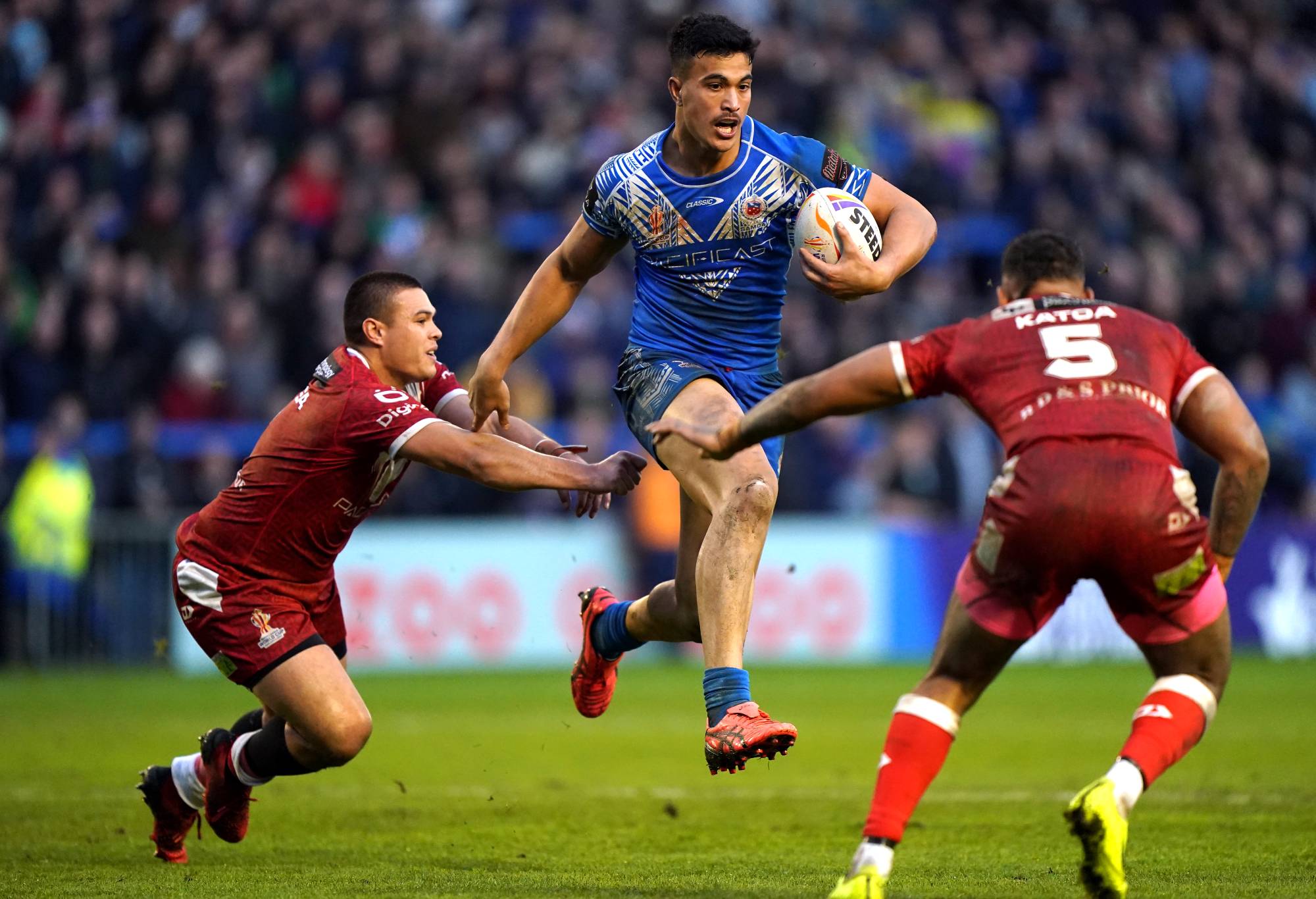
Samoa’s Joseph Suaali’i (centre) attempts to get past Tonga’s Sione Katoa (right) during the Rugby League World Cup quarter final match at the Halliwell Jones Stadium, Warrington. Picture date: Sunday November 6, 2022. (Photo by Tim Goode/PA Images via Getty Images)
When France signed up to take on hosting, it was part of a series of events beginning with this year’s Rugby Union World Cup, then next year’s Olympics in Paris, then the RLWC in 2025. It’s an easy call for the French government to axe the latter, it being the furthest away and by far the least prestigious.
Here’s your vicious circle again. France lost the rights to host the World Cup because the French government doesn’t have as much money as they thought they would have.
The IRL can’t step in because they don’t have the cash either, which they don’t have because nobody that matters takes internationals seriously enough, so they can’t convince governments to either.
It’s why Australia matters. It’s why State of Origin, which is what powerbrokers in this country actually care about, matters.
Naturally, this is not true of Origin, which forms a significant part of the TV deal and is one of the most profitable aspects of the game.
As it stands, the Australian Rugby League Commission (ARLC) would rather play an internal representative game than deign to face off with anyone else, and when the most powerful nation thinks that it isn’t worth it, then why should anyone else?
The payment structure for internationals is a sticking point, because everyone needs to get paid and nobody knows who is stumping up.
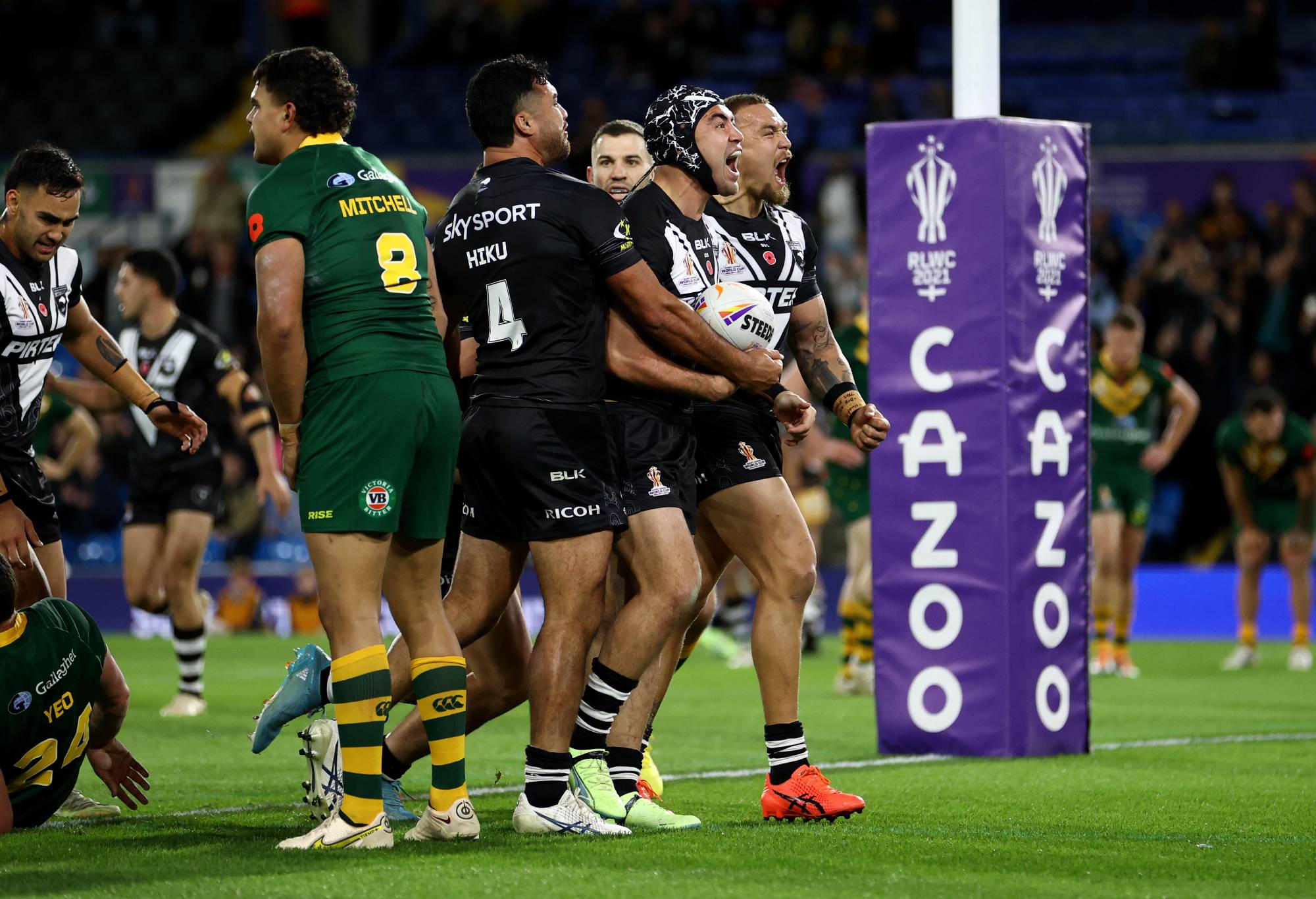
(Photo by Michael Steele/Getty Images)
The TV deal with Foxtel and Channel 9 should cover it, but they think they’ve already paid for the content as part of the wider NRL rights deal. The NRL have to pay for Australia – reportedly at least $20,000 per player per game – and the RLPA want them to pay for the other nations, too, given the inability of Pacific nations to pay for themselves.
Famously, Tonga played the 2017 World Cup for free, and in 2019 – the last time Australia played in Australia – the Kangaroos took a pay cut to get the game against Tonga on.
Fans will also remember that hosting games, another major overhead, has often resulted in the fixture being sold to the highest bidder – such as the ACT government, which kicked in for a Test in Canberra that ultimately lost money.
The 2017 World Cup saw just two games played in Sydney because other states’ tourism boards paid up, but the NSW Government did not, with Cairns hosting more fixtures than the biggest rugby league market on Earth.
The Kangaroos do not exist in a vacuum and, obviously, need someone to play against and somewhere to play it. That the TV deal was sold without a clear structure of who would remunerate the players speaks to the afterthought that international footy is.
It’s an afterthought despite its commercial success: it rates well, and when played in proper locations, sells tickets. The major issue, of course, is that there’s no long-term planning at all, because the international game isn’t a priority. It’s a failure of marketing of the highest order, a premium product left on the shelf.
Broadcasters would love consistent content in the shoulder season between major football codes and cricket, and advertisers would love to get involved too, but the product has been undersold so much by its owners that they expect to be given it for free.
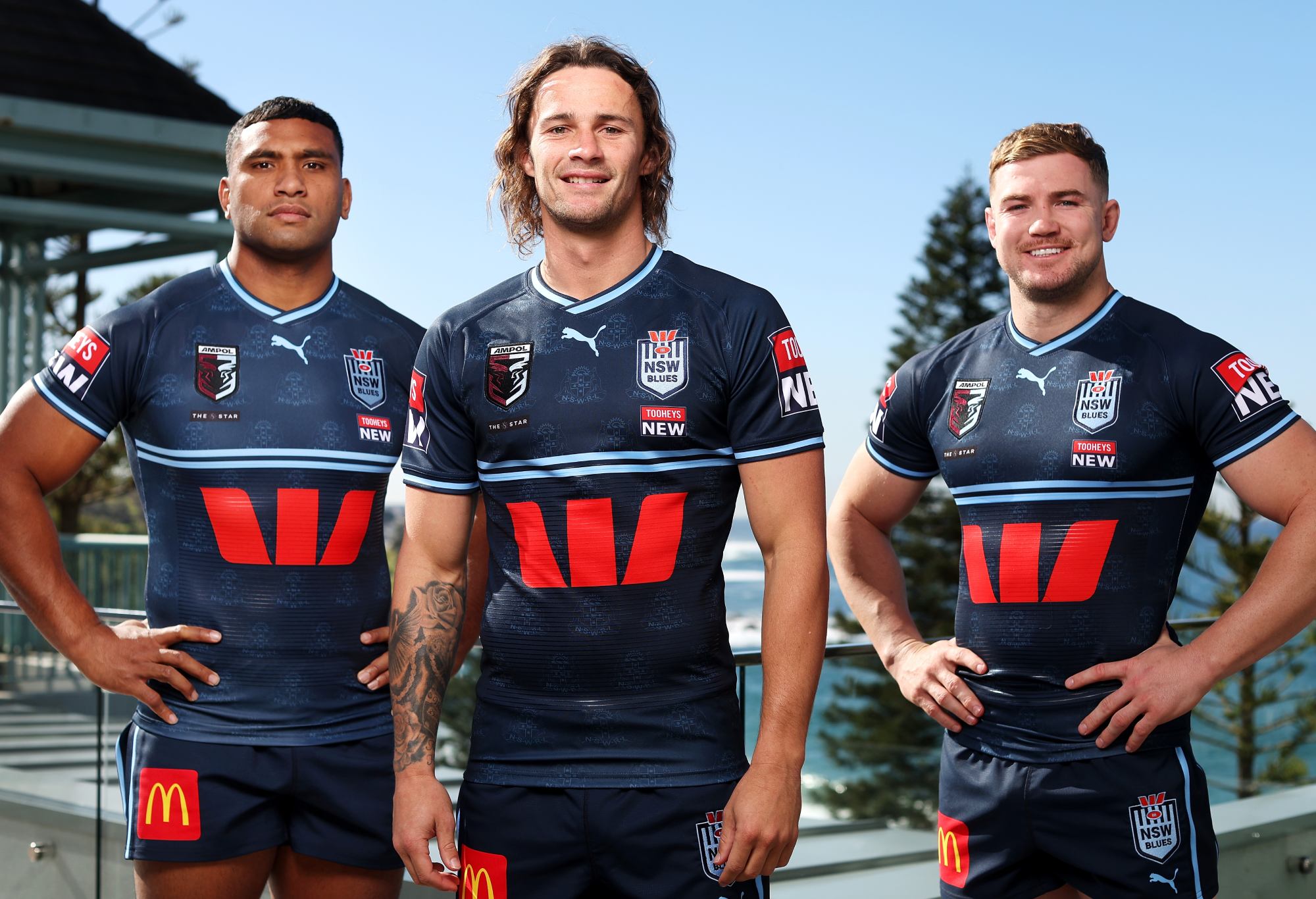
Blues debutants Tevita Pangai jnr, Nicho Hynes and Hudson Young. (Photo by Mark Kolbe/Getty Images)
Let’s be clear here: it’s a choice to make Origin a priority over Test footy. The reason people think internationals aren’t worth it – or conversely, the reason they think Origin is worth it – is because they’re told by the nexus of organisers, broadcasters and sponsors that it is.
It’s not a knock on Origin, which is a great product, but it belies a total lack of ambition that our game might be something that goes further than just two Aussie states, a motorway in the North of England and parts of New Zealand.
For their part, England have found the cash – despite having far less of it to go around – to host Tonga at the end of the year. New Zealand, whom Australia should be crawling over hot coals to help out given their sacrifices during the pandemic, have put their hand up to take the ailing 2025 World Cup. Even the likes of lowly Serbia have played two internationals in the last month.
Yet with sit and wait, and sit and wait, for anything from the Kangaroos or Jillaroos. They’ve not played on Australian soil since October 2019 and may not again this year.
Speaking last week to NSW Blues stars, you would have forgotten that internationals existed.
Tevita Pangai junior (six Tests for Tonga), Tyson Frizell (five Tests for Wales, 14 for Australia) and Josh Addo-Carr (seven for Australia) all described Origin as the pinnacle, or words to that effect, when asked by The Roar.
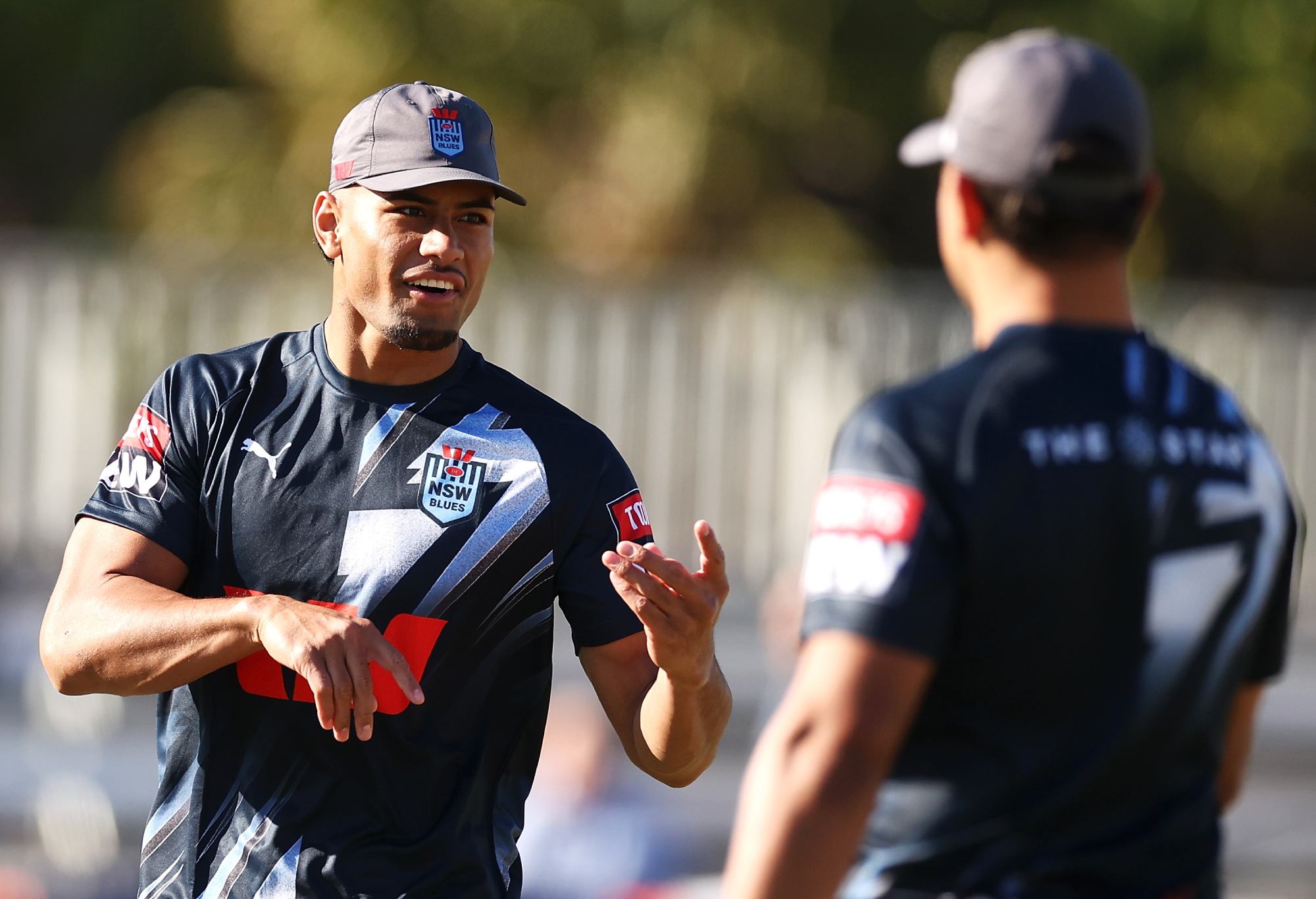
Stephen Crichton speaks to Latrell Mitchell at Blues training. (Photo by Mark Kolbe/Getty Images)
That’s fair enough. There’s a strong argument that Origin is the best rugby league contest anywhere in the world, given the talent on display, but it would be a crying shame if it were actually the pinnacle of the sport.
First of all, somewhere between a third and half of professional rugby league players aren’t eligible to play in it. For those, it can never be the pinnacle, because they don’t get to participate.
They are the ones that need international games to be taken seriously, and Australia will never take international footy seriously so long as Origin is the cash cow.
Secondly, the reason that Origin is so lucrative is precisely why it needs to be taken down a notch.
Rugby league in Australia seems at times to be organised as part of a strange boomer nostalgia project – see, three grades in one day, the constant desire for new stadiums on the sites of previous stadiums – and Origin is the highest echelon of it.
It peaked in the early 1990s, when the people making decisions in the game were at their maximum age of enjoyment, and all of the best Origin moments that we still see today date from that period.
Nobody talks about, for example, Shaun Timmins’ golden point field goal in 2004 – objectively a better rugby league moment – but everyone remembers Wally Lewis shouting at Mark Geyer. It’s almost as if the sporting aspect doesn’t really matter that much.
That’s OK, by the way. Sex sells, and sex in rugby league is fighting. It’s not Origin’s fault that it’s so big, but that it is so all-powerful represents a net negative for the sport.
The NRL, theoretically the biggest competition in the sport, destroys its own competitiveness for six weeks in deference to an all-star game. Everyone else that isn’t Australian, or isn’t from the right part of Australia, has to sit on the sidelines.
Moreover, the sport writ large suffers from the overwhelming disease of Originitis, where we collectively forget why the game is exciting in the first place to talk about the biff or who wants it more. It’s as if a time machine brought us back to 1991 for six weeks every year.
Australia could take the vicious circle and make it virtuous. When the CBA is announced – if that ever happens – then we could actually get an international calendar published.
IRL chair Troy Grant has gone on the record to say that the parts of the pay deal pertaining to Test footy are 95% done. They, like everyone else, are beholden to the NRL.
The cycle could be spun in the other direction. It’s a cliche to say ‘build it and they will come’, but seriously: Samoa v Australia at CommBank Stadium, Australia v New Zealand at Eden Park, Samoa v New Zealand at Mt Smart Stadium. It’s the no brainer to end all no brainers.
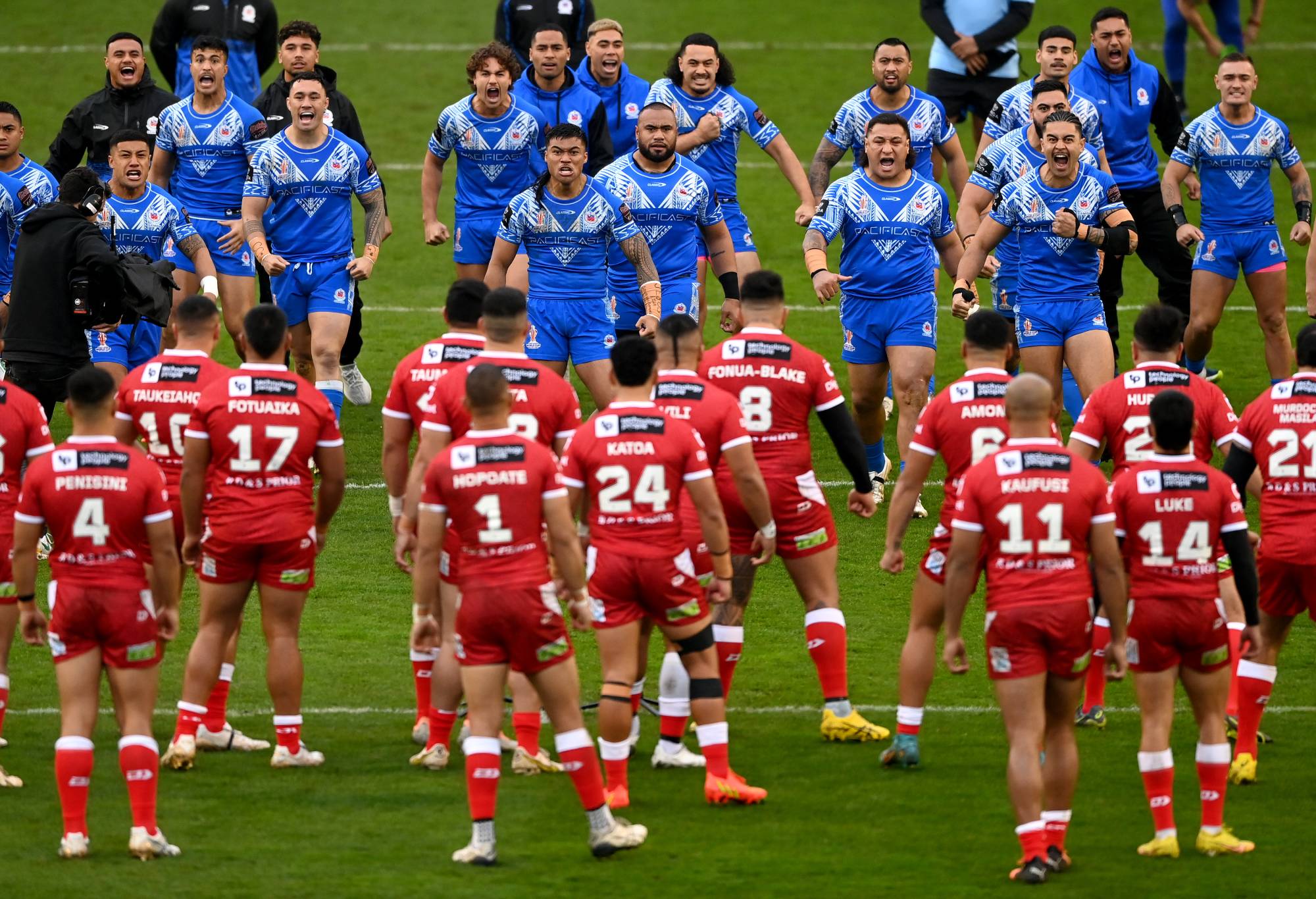
(Photo by Gareth Copley/Getty Images)
TV would love it, fans would turn up, the tills would tick over and suddenly you can go back next year and sell it all over again, with England and Tonga and whoever else you want to invite.
International cricket, which often throws up horrendous spectacles between World Cups, get away with it because they put all the eggs in the international basket.
People kept turning up and tuning in to watch Australia complete dominate two terrible touring teams this summer gone, because everyone told them it was going to be great.
The IPL, which has all the stars and actually is competitive, is hit and giggle compared to proper Tests, even though Australia was bank interest to batter a rubbish West Indies and South Africa. Marketing is everything.
International football, when it isn’t a tournament, is generally poor quality and even at tournaments, it’s levels down from what is produced in the higher echelons of club competitions such as the Champions League. But guess what: nobody cares. They love it.
Australia could do a lot to learn from this. Origin can be the pinnacle on the field, and should be sold with that as a plus point. It’s the world’s best all star game, because everyone takes it seriously and most of your favourite players are there.
But it can’t actually be the pinnacle. Not if we, as a sport, want anybody new to care about our game.
The sad truth is that the obsession with Blues v Maroons kills the idea that we could have something better – five or six Origin-calibre teams playing off, in a tournament that matters – while also denigrating the club competition at the same time.
It’s the beast that needs to be tamed if rugby league wants to move forward.

































































































